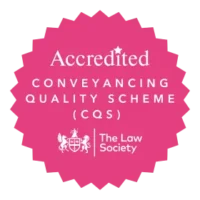Employment Law: What happens when you are given a Settlement Agreement by your Employer?
27th May 2025
What is a Settlement Agreement
In brief, you give up your rights to sue your employer, and they agree to compensate you for giving up those rights by offering a sum of money and, sometime, enhanced benefits.
A Settlement Agreement is a written agreement between you and your employer which settles any employment law claims you may have against your employer (for example, they want to dismiss you but do not want to have to go through the formal redundancy or dismissal process).
>Settlement Agreements are also used to resolve any disputes that you may have with the employer, for which they may be at risk of you succeeding in an Employment Tribunal claim against them.
Most commonly Settlement Agreements are used when an Employer wishes to bring an Employee’s employment to an end. And this can be for a variety of reasons, including poor performance, not fitting in, redundancy, restructuring or a takeover of a company (known as mergers or acquisitions or “TUPE” in an Employment Law sense).
Why Settlement Agreements are not always a bad thing
Although it is often a tough pill to swallow when your employer wants to terminate your employment with them, the Settlement Agreement gives both you and your employer certainty. You know that you will receive a specific amount of money by a specified date and your employer can rest assured that you will not bring a claim in the Employment Tribunal against them.
Settlement Agreements may also structure payments in a tax-effective way and takes out the risk factor of being awarded less at an Employment Tribunal (as well as the time and costs involved in pursuing a Tribunal Claim). It also means that you can move on to a new job quicker. Usually, Employers will agree with you the reference that they will provide to future employers as part of the severance package.
Why should I give up my rights to sue my employer?
Each Settlement Agreement is individual to the person receiving it, as are the circumstances in which the Settlement Agreement has been given.
If you have done something to make your employers unhappy with continuing your employment contract then a Settlement Agreement is a good way out of the employment relationship (as if you were dismissed legally, you would receive nothing and may even have difficulties getting a good reference for future employment).
If the employer has done something or is doing something that means that your employment needs to be terminated, then really the answer is ‘it depends’.
In this scenario, it would me more a case of weighing up the likely value of any claims you might have versus what is being offered. If you feel that the settlement offer they have provided you is too low, you may want to go back to them to negotiate. Likewise, if you are given a Settlement Agreement because you have had an accident at work, we recommend you talk to one of our Personal Injury team to assess the potential value of making an injury claim against your employer.
What should my employer be giving me within a Settlement Agreement?
Your employer might provide you with: –
1. Termination Payment (“Ex-Gratia” Payment – Tax free up to £30,000.00)
2. Payment In Lieu of Notice (“PILON”); or
3. Garden Leave.
4. Payment for accrued and unused holiday.
5. Final salary payment.
6. An agreed reference for future employers.
What restrictions will my employer place on me?
It may be that your employer either enforces restrictive covenants or introduces new covenants to the Settlement. Where they are placing new restrictions that were not in your original contract of Employment, they should compensate you (this would be a low sum of money, usually under £100).
It is important to consider the restrictions and to abide by them. If they place restrictions that you do not think that you will be able to live by, it is important to let your Employer know as they may be agreeable to removing any covenants that would cause you difficulty (e.g. if you had an accident at work and could no longer drive, a restrictive covenant saying you cannot work within 30 miles of your current employer may not be fair or reasonable).
How much does it cost?
The Settlement Agreement will state how much your employer is offering to pay. If it is not a straightforward matter or we do not think it will be enough to cover our fees, we will usually ask the employer to pay more.
You do not have to pay anything unless you have agreed a contribution with us in advance. We place cost transparency at the heart of everything we do, so there will be no surprise bills at the end. Only what has been agreed.
There are of course exceptions. If the Settlement Agreement has been produced due to an issue caused by you, the employer may refuse to make a payment for legal advice, in which case we will provide you with a fixed fee quote.
What do I need to give you?
We will need from you:-
1. Two forms of ID, one with a photo of you and the other with your address on.
2. Your contract of employment
3. The Settlement Agreement
Once you have sent the above, we will contact you to have a chat about the Settlement Agreement, the financial compensation, the Restrictions and any areas that you do not understand or are concerned about.
We do not advise on any dispute issues, or the likely prospects of success if you were to take your matter to an Employment Tribunal. For these types of questions, we recommend that you contact ACAS for free impartial advice.
Ready to take advice on your Settlement Agreement?
If you are ready to take advice, you are welcome to call us for a telephone appointment and free initial advice, email us, or contact us through our website.
Our advice is cost transparent and easy to understand. Our Employment Law team act without judgement and in your best interest no matter what the circumstances. Your matter, and the details surrounding it, are in safe hands with us.
Related news
Articles you may find useful
Like this article? Sign up for our regular newsletters






